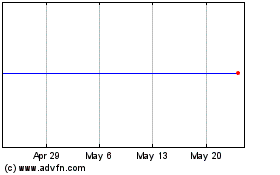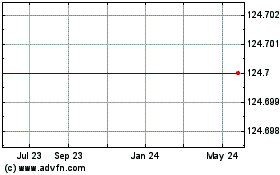Onyx Pharmaceuticals, Inc. (NASDAQ: ONXX) announced today that
Leukemia has published results from the Phase 2 trial known as
PX-171-005 (NCT00721734), an open-label, multicenter clinical trial
evaluating Kyprolis® (carfilzomib) for Injection in patients with
relapsed and refractory multiple myeloma and varying degrees of
renal insufficiency. The article is titled, "Carfilzomib in
Multiple Myeloma Patients With Renal Impairment: Pharmacokinetics
and Safety." The lead author was Dr. Ashraf Badros, Professor of
Medicine at the University of Maryland Greenebaum Cancer Center.
"Renal impairment is a frequent and severe complication in
patients with multiple myeloma, and presents challenges in the
utilization of some anti-myeloma therapies," said Dr. Badros. "This
prospective study provides important data for carfilzomib use
across the spectrum of renal impairment, from patients presenting
with minimal impairment to those on chronic hemodialysis."
About the PX-171-005 Study Fifty patients
with relapsed, refractory and/or progressive multiple myeloma who
had received at least two prior therapeutic regimens were enrolled
in the open-label, single-agent, multicenter Phase 2 trial, and 47
were evaluable for response. The authors reported on the primary
and secondary endpoints of the trial. The primary endpoint was the
influence of renal impairment on the pharmacokinetics (PK) of
carfilzomib. Statistical comparisons showed no differences between
renal function status and the dose-adjusted PK parameters including
apparent plasma clearance, dose-normalized AUCinf (total exposure),
and the dose-normalized Cmax. Secondary outcomes included safety,
tolerability, pharmacodynamic (PDn) measures, and efficacy. The
most common treatment-emergent adverse events (AEs) reported in
this study were fatigue (56%) and anemia (50%), and the most common
Grade 3/4 AEs were anemia (28%), thrombocytopenia (20%). The most
common AEs of any grade possibly related to carfilzomib were
fatigue (56%), anemia (50%), nausea (36%), and diarrhea (36%).
Data from the trial were initially presented at the 2010
American Society of Clinical Oncology Annual Meeting and at
subsequent international scientific meetings. The trial was
conducted at five sites in the United States. An electronic version
of the article can be accessed at
http://www.nature.com/leu/journal/vaop/naam/pdf/leu201329a.pdf.
Important Indication and Safety Information for
Kyprolis® (carfilzomib)
for Injection On July 20, 2012, the U.S. Food and Drug
Administration (FDA) granted accelerated approval of Kyprolis®
(carfilzomib) for Injection for the treatment of patients with
multiple myeloma who have received at least two prior therapies
including bortezomib and an immunomodulatory agent (IMiD), and have
demonstrated disease progression on or within 60 days of completion
of the last therapy. Approval was based on response rate. Clinical
benefit, such as improvement in survival or symptoms, has not been
verified.
Safety data were evaluated in 526 patients with relapsed and/or
refractory multiple myeloma who received single-agent KYPROLIS.
There were 37 deaths in the Phase 2 studies, or 7% of patients. The
most common causes of death, other than disease progression, were
cardiac (5 patients), end-organ failure (4 patients), and infection
(4 patients). Important warnings and precautions include cardiac
arrest, congestive heart failure, myocardial ischemia; pulmonary
hypertension, pulmonary complications, infusion reactions, tumor
lysis syndrome, thrombocytopenia, hepatic toxicity and embryo-fetal
toxicity.
Death due to cardiac arrest has occurred within a day of
KYPROLIS administration. Patients with New York Heart Association
Class III and IV heart failure, myocardial infarction in the
preceding 6 months, and conduction abnormalities uncontrolled by
medications were not eligible for the clinical trials. These
patients may be at greater risk for cardiac complications.
Pulmonary arterial hypertension (PAH) was reported in 2% of
patients treated with KYPROLIS and was Grade 3 or greater in less
than 1% of patients. Dyspnea was reported in 35% of patients
enrolled in clinical trials. Grade 3 dyspnea occurred in 5%; no
Grade 4 events, and 1 death (Grade 5) was reported.
Infusion reactions, characterized by a spectrum of systemic
symptoms including fever, chills, arthralgia, myalgia, facial
flushing, facial edema, vomiting, weakness, shortness of breath,
hypotension, syncope, chest tightness, or angina can occur
immediately following or up to 24 hours after administration of
KYPROLIS. Administration of dexamethasone prior to KYPROLIS reduces
the incidence and severity of reactions. Tumor lysis syndrome (TLS)
occurred following KYPROLIS administration in < 1% of patients.
Patients with multiple myeloma and a high tumor burden should be
considered to be at greater risk for TLS.
Thrombocytopenia following KYPROLIS administration resulted in a
dose reduction in 1% of patients and discontinuation of treatment
with KYPROLIS in < 1% of patients.
Cases of hepatic failure, including fatal cases, have been
reported (< 1%). KYPROLIS can cause elevations of serum
transaminases and bilirubin.
There are no adequate and well-controlled studies in pregnant
women using KYPROLIS. Females of reproductive potential should be
advised to avoid becoming pregnant while being treated with
KYPROLIS.
The most common serious adverse reactions were pneumonia, acute
renal failure, pyrexia, and congestive heart failure. The most
common adverse reactions (incidence of 30% or greater) observed in
clinical trials of patients with multiple myeloma were fatigue,
anemia, nausea, thrombocytopenia, dyspnea, diarrhea, and pyrexia.
Serious adverse reactions were reported in 45% of patients.
Full prescribing information is available at
http://www.kyprolis.com.
About Multiple Myeloma Multiple myeloma is
the second most common hematologic cancer and results from an
abnormality of plasma cells, usually in the bone marrow. In the
United States, more than 50,000 people are living with multiple
myeloma and approximately 20,000 new cases are diagnosed
annually.(1) Worldwide, more than 220,000 people are living with
multiple myeloma and approximately 100,000 new cases are diagnosed
annually.(2)
About Onyx Pharmaceuticals, Inc. Based in
South San Francisco, California, Onyx Pharmaceuticals, Inc. is a
global biopharmaceutical company engaged in the development and
commercialization of innovative therapies for improving the lives
of people with cancer. The company is focused on developing novel
medicines that target key molecular pathways. For more information
about Onyx, visit the company's website at www.onyx.com.
Kyprolis® is a registered trademark of Onyx Pharmaceuticals,
Inc.
Note Regarding PX-171-005 Study This news
release includes partial results from the PX-171-005 study. The
partial results contained herein should be considered within the
context of the full PX-171-005 study results, which are discussed
in greater detail in the article titled, "Carfilzomib in Multiple
Myeloma Patients With Renal Impairment: Pharmacokinetics and
Safety," which can be accessed by following the link in this news
release.
(1) American Cancer Society, Cancer Facts & Figures 2012
(2) International Agency for Research on Cancer, GLOBOCAN
2010
Onyx Pharmaceuticals, Inc. (MM) (NASDAQ:ONXX)
Historical Stock Chart
From Jun 2024 to Jul 2024

Onyx Pharmaceuticals, Inc. (MM) (NASDAQ:ONXX)
Historical Stock Chart
From Jul 2023 to Jul 2024
